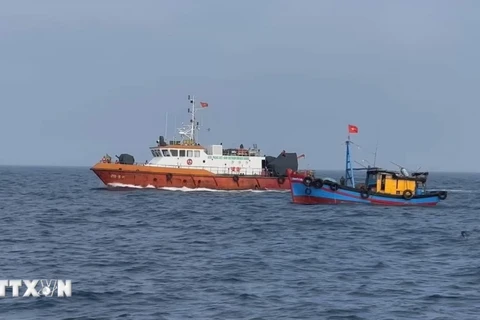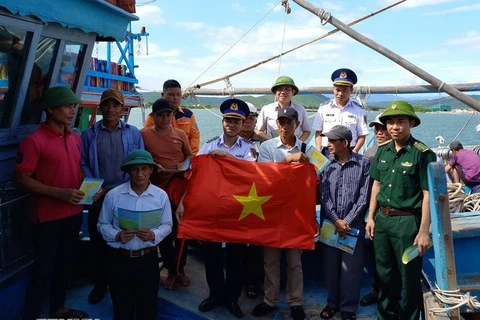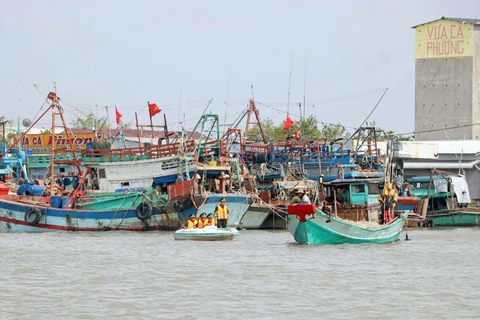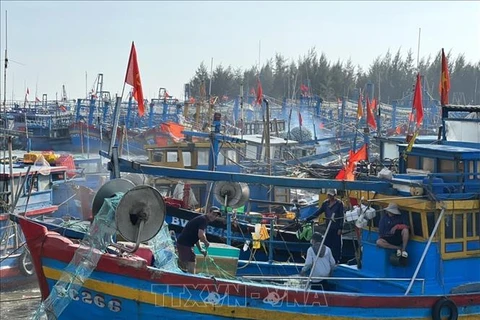 Currently, Vietnam’s vessel management has significantly improved, with a national database on fishing vessels put into operation. (Photo: VNA)
Currently, Vietnam’s vessel management has significantly improved, with a national database on fishing vessels put into operation. (Photo: VNA) The three-day workshop, organised by the Ministry of Agriculture and Rural Development’s Directorate of Fisheries and the US Mission in Vietnam, are gathering attendants from the US, Australia, Canada, the Republic of Korea, Japan, the UK, Malaysia, the Philippines, Indonesia, Thailand, and Vietnam.
Ryan McKean, Director of the Bureau of International Narcotics and Law Enforcement Affairs (INL) at the US Embassy in Hanoi, said this workshop comes at a time when countries are facing increasingly complex challenges regarding IUU fishing activities. He recommended cooperating in maritime law enforcement and combating IUU fishing, contributing to the protection and sustainable management of fisheries resources for future generations.
At the event, participants exchanged views on various IUU-related topics as well as updates on global trends in the fight against IUU, challenges in the region’s fisheries development, initiatives to enhance information sharing cooperation, and tools for the monitoring, control and surveillance (MCS) of fishing vessels.
The Vietnam Directorate of Fisheries presented on the country’s cooperative mechanism in enforcing MCS, with international experts sharing experiences in addressing IUU violations domestically and internationally through hypothetical scenarios.
Deputy Director of the directorate Duong Van Cuong said that the workshop coincides with Vietnam's heightened efforts in combating IUU fishing.
Currently, the nation’s vessel management has significantly improved, with a national database on fishing vessels put into operation. More than 97.65% of local fishing vessels operating offshore have been equipped with tracking devices. The origin tracing of fisheries has been implemented and controlled along the supply chain, from fishing ports to processing plants and exports. Since 2015, law enforcement at sea has been rigorously conducted, resulting in a significant reduction in the number of vessels violating foreign waters./.
VNA
























